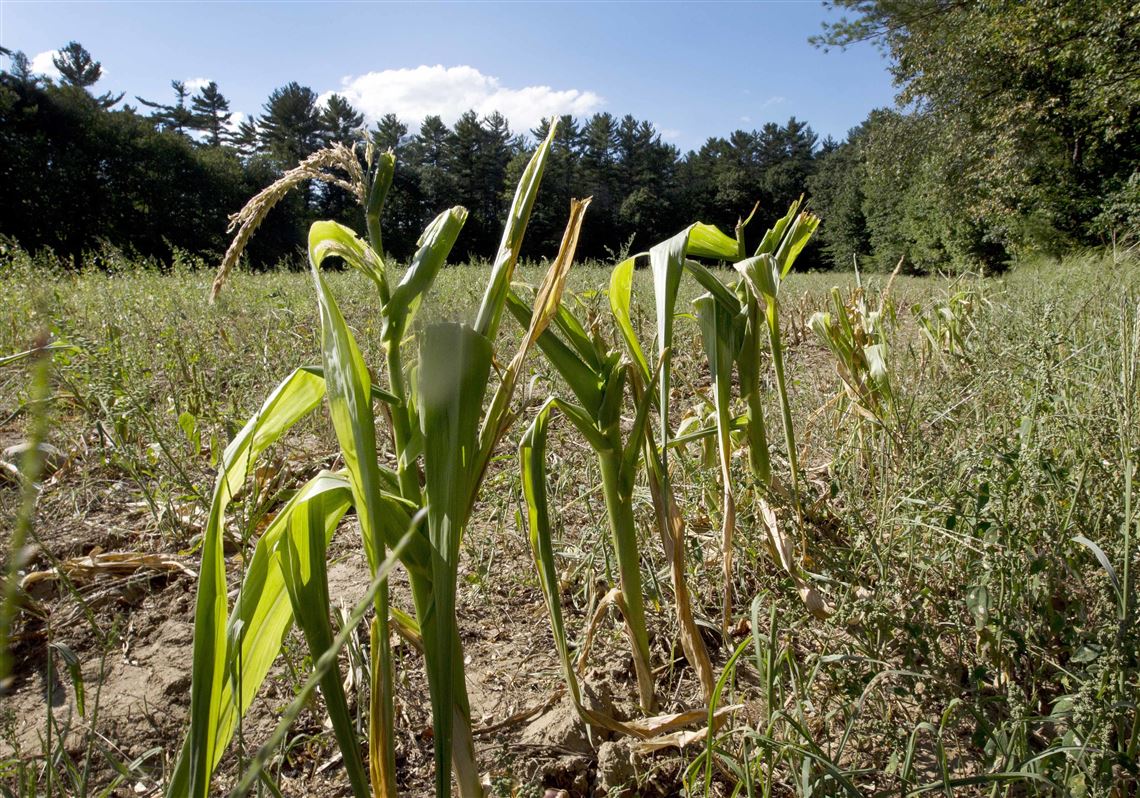A dearth of rainfall this summer has turned many of Pennsylvania’s creeks into rock gardens and caused the state Department of Environmental Protection to declare a drought watch in 16 north-central and western counties.
It’s the first drought watch declaration in the state since May 2017.
Under the watch, residents of Armstrong, Blair, Butler, Cambria, Cameron, Centre, Clearfield, Clinton, Fayette, Huntingdon, Indiana, Juniata, McKean, Mifflin, Perry, and Potter counties are asked to voluntarily reduce individual water use by 5% to 60 gallons a day.
The statewide daily average consumption of water is 62 gallons.
“We’re asking residents in these 16 counties to use water wisely and follow simple water conservation tips to ease the demand for water,” said DEP Secretary Patrick McDonnell, in a Friday afternoon news release announcing the declaration by the Commonwealth Drought Task Force.
Drought watch and the more severe drought warning declarations are determined by DEP, with support of the task force, which is composed of state and federal environmental agency personnel.
Drought emergency declarations, the most serious declaration, follow a similar process, with final approval by the governor.
The DEP makes drought declaration determinations based on four indicators: stream flow and groundwater level data from a statewide network of gauges, precipitation amount, and soil moisture. It also gets water supply information from public water suppliers.
“The whole point of a drought watch, the main message, is to ask people to take voluntary actions to reduce water use,” said Deb Klenotic, a DEP spokeswoman. “We’re trying to be proactive. If everyone saves a little water, collectively we can save a lot.”
The state release said localized conditions during a drought watch can lead individual water suppliers or municipalities to request more stringent conservation actions by residents. The DEP is also telling all water suppliers in the drought watch counties to monitor their supplies and update their drought contingency plans as necessary.
Ms. Klenotic said public water systems already instituting voluntary water restrictions to preserve their drinking water supplies are: Driftwood Borough, Cameron County; Cooper Township Municipal Authority, Clearfield County; Beccaria Coalport Irvona (BCI) Municipal Authority, Clearfield County; Johnsonburg Municipal Authority, Elk County; Bloomfield Borough Water Authority, Perry County; and Roulette Township Water Authority, Potter County.
The DEP’s recommendations for reducing individual water use include:
▪ Run water only when necessary. Don’t let the faucet run while brushing your teeth or shaving. Shorten the time you let the water run to warm up before showering. Use a bucket to catch the water and then reuse it to water your plants.
▪ Run the dishwasher and washing machine only with full loads.
▪ When watering your garden, be efficient and effective: Water in the evening or morning, and direct the water to the ground at the base of the plant, so you don’t waste water through evaporation.
▪ Check for household leaks. A leaking toilet can waste up to 200 gallons of water daily.
More information on the drought watch is at www.dep.pa.gov/drought.
Don Hopey: dhopey@post-gazette.com or 412-263-1983. Twitter: @donhopey.
First Published: August 21, 2020, 11:50 p.m.

















